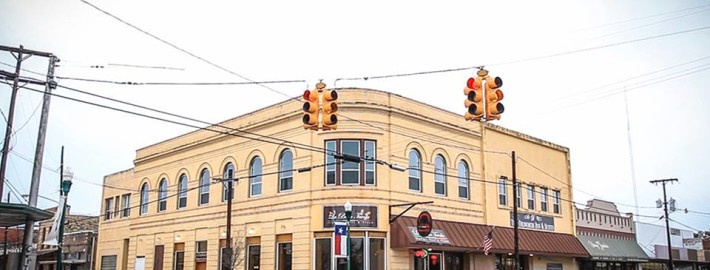Real Estate Investors, If You Could Buy Single Family Homes With No Mortgage For 20 Cents On The Dollar, How Many Would You Buy?
By Ted Thomas
Here’s the secrets of a little known but highly lucrative business of purchasing tax defaulted properties at auction for 10-20 cents on the dollar.
For many, the question is, what’s the difference between a tax lien certificate and a tax defaulted property (tax deed)? Before you begin investing, it is vital that you understand how a tax deed works, once you know you can purchase tax-defaulted real estate for pennies on the dollar but it’s only profitable if you know what you are getting when you bid.
What is Tax Defaulted Property (Tax Deeds)?
In a very basic sense, every piece of land in the United States is owned by the federal government. The government allows you the right to own the property as long as you pay taxes on it.
 Many years ago, the U.S. Congress enacted laws that allowed individual states to handle governmental duties and obligations at the local level. The states further designated counties to handle the property taxation part of those duties and obligations. When you pay property taxes to the treasurer or assessor’s office, those funds are used to pay for public schools, police and fire departments, and any number of other civic services. The local government that manages and operates these services is primarily funded by property taxes.
Many years ago, the U.S. Congress enacted laws that allowed individual states to handle governmental duties and obligations at the local level. The states further designated counties to handle the property taxation part of those duties and obligations. When you pay property taxes to the treasurer or assessor’s office, those funds are used to pay for public schools, police and fire departments, and any number of other civic services. The local government that manages and operates these services is primarily funded by property taxes.
Every year hundreds of thousands of property owners neglect to pay property taxes for various reasons. So what happens then??
 The remedy for local government is to confiscate that property and resell it at a tax defaulted property auction for only the back taxes with no mortgage. The majority of these auctions use a public oral bid system. To quality as a bidder is simple; you just need to register before bidding. The starting bid is the amount due to the local government for back taxes plus penalties and interest. If you win, in most instances, you must immediately pay for your purchase.
The remedy for local government is to confiscate that property and resell it at a tax defaulted property auction for only the back taxes with no mortgage. The majority of these auctions use a public oral bid system. To quality as a bidder is simple; you just need to register before bidding. The starting bid is the amount due to the local government for back taxes plus penalties and interest. If you win, in most instances, you must immediately pay for your purchase.
It doesn’t matter where you live; county governments in all 50 states are authorized to hold auctions to recover delinquent back taxes. Some states offer tax lien certificates, other states offer tax defaulted property auctions (tax deeds) which are used to collect the past due property taxes owed. The difference? A tax lien certificate entitles you to collect the amount of tax you paid plus the interest penalties; a tax deed purchased at auction allows you to become the owner of the property for the price you bid at auction the mortgage is extinguished, that is deleted by law.
The secret to becoming a successful investor in tax defaulted property (tax deed) real estate is to know the who, what, when, where, why, and how these tax auctions take place.
Golden Rule #1
Know what you’re buying. This includes the size of the parcel, how many buildings are on it, zoning, restrictions, easements, the annual amount of property taxes, the appraisal value, previous sale prices, and current condition.
Taxes are usually assessed at 1 to 1.5 percent of the property’s value. So a piece of real estate valued at $100,000 will be assessed somewhere around $1,000 in taxes each year. Three years of back taxes would equal $3,000 and the local county will probably ask for a minimum bid at the tax defaulted property auction of $3,500 -the county will add late payment penalties to the back taxes.
The next question that must be answered is where and when are the auctions taking place? Normally auctions are conducted at county offices, but not always. Regardless of the location, it will be announced in advance of the auction. Some counties hold one big annual event while others schedule tax defaulted property auctions monthly, annually in the United State of America there’s over 5,000 tax defaulted auctions.
Secondly, you must know how the bidding process works. Rules vary from state to state, taxing district to taxing district. Some counties use an online bidding process which is becoming more and more popular, but the majority still hold live auctions you may attend in person.
At the auction, each parcel number is announced in turn; then the auctioneer asks for opening bids. It works much like any other auction; the bidding goes up until there are no more bids. The person who wins with the highest bid is awarded a Treasurers Tax Deed from the county treasurer. Make note there’s dozens of unique bidding processes, this is only one.
Real Estate For 20 Cents On The Dollar
There’s big money to be made buying tax defaulted property at auction Tax defaulted property (tax deed) auctions allow you to buy low and resell for a quick profit. Do your research, and you’re bound to find success!
 Ted Thomas is famous for showing newcomers and investors how to earn 6 figure incomes within 1 year of completing his training program. Conservative investors love tax lien certificates because they are predictable, certain and secure and sold by local government. Tax defaulted properties are sold at oral big auctions and online. Starting bid, only the back taxes…. More information at TedThomas.com
Ted Thomas is famous for showing newcomers and investors how to earn 6 figure incomes within 1 year of completing his training program. Conservative investors love tax lien certificates because they are predictable, certain and secure and sold by local government. Tax defaulted properties are sold at oral big auctions and online. Starting bid, only the back taxes…. More information at TedThomas.com





 Tell us about the hotel. Where and how did you find it?
Tell us about the hotel. Where and how did you find it?  Stacee, I’ve personally seen your growth as an investor the past five years that we’ve known each other, and let me just say how proud I am of you! I know you left the corporate world years ago to become a full-time real estate investor. You made it happen! Can you share some inside tips for others who want to leave their corporate job and be their own boss through real estate?
Stacee, I’ve personally seen your growth as an investor the past five years that we’ve known each other, and let me just say how proud I am of you! I know you left the corporate world years ago to become a full-time real estate investor. You made it happen! Can you share some inside tips for others who want to leave their corporate job and be their own boss through real estate? Stacee Nelson is a Fund Manager for Purple Rooster Holdings, LLC, a private equity fund that purchases distressed residential properties and notes. As a real estate investor, she has purchased and turned around multiple single family residences, residential and commercial notes, and hotels. She owns investment properties in several states and has successfully raised millions of dollars in private capital over the last few years.
Stacee Nelson is a Fund Manager for Purple Rooster Holdings, LLC, a private equity fund that purchases distressed residential properties and notes. As a real estate investor, she has purchased and turned around multiple single family residences, residential and commercial notes, and hotels. She owns investment properties in several states and has successfully raised millions of dollars in private capital over the last few years.